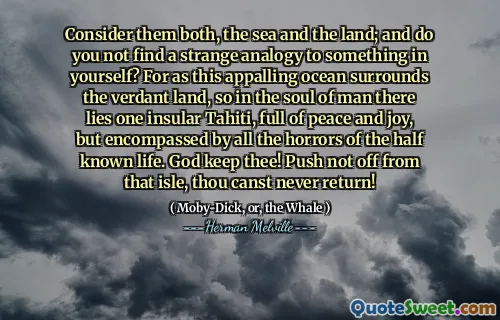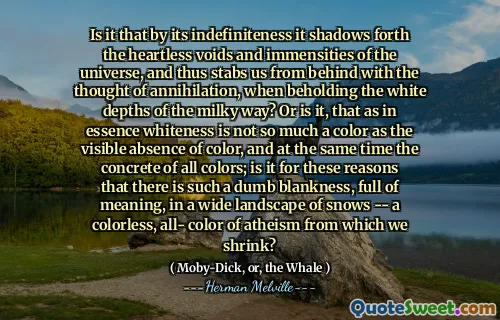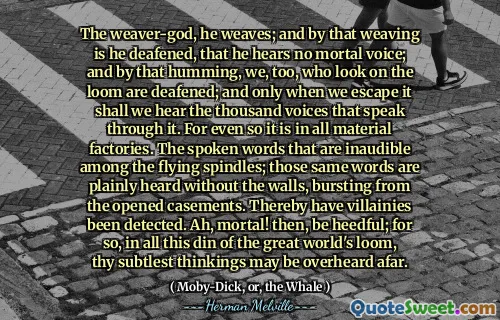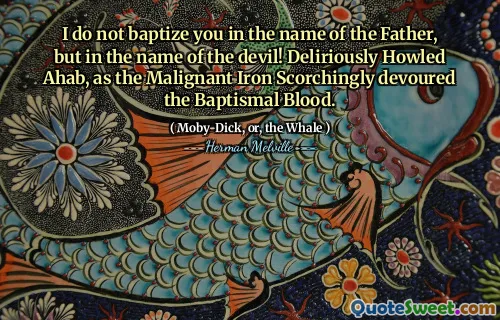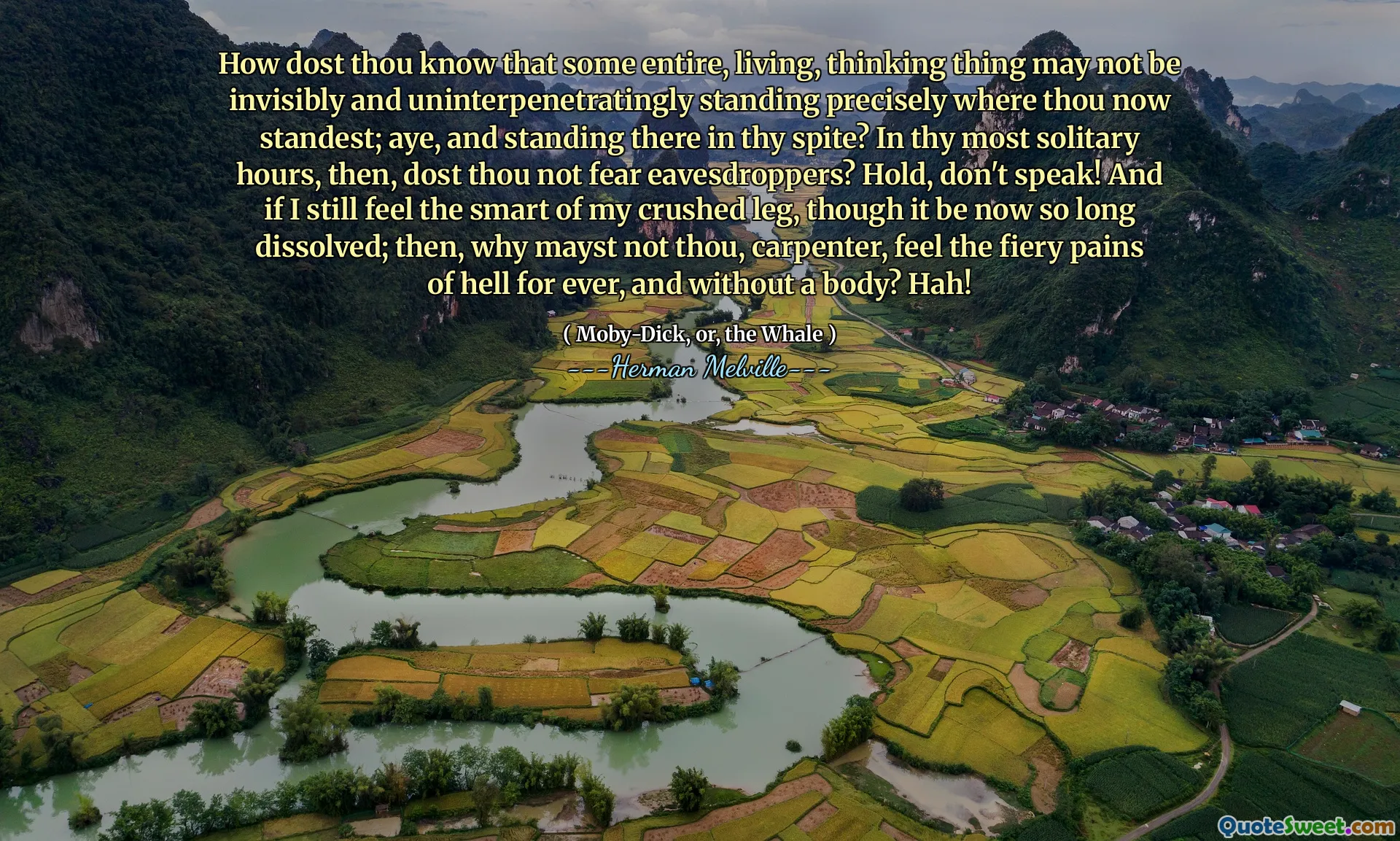
How dost thou know that some entire, living, thinking thing may not be invisibly and uninterpenetratingly standing precisely where thou now standest; aye, and standing there in thy spite? In thy most solitary hours, then, dost thou not fear eavesdroppers? Hold, don't speak! And if I still feel the smart of my crushed leg, though it be now so long dissolved; then, why mayst not thou, carpenter, feel the fiery pains of hell for ever, and without a body? Hah!
The excerpt from "Moby-Dick" by Herman Melville raises profound questions about existence and perception. It suggests the possibility of unseen entities coexisting with us, challenging the perception of isolation. The speaker urges contemplation of the unseen, provoking thoughts about solitude and the presence of observers, inviting readers to consider what may be lurking just beyond their perception.
Additionally, the passage explores the idea of suffering and the enduring nature of pain. The speaker references their own physical torment, drawing a parallel to the potential eternal suffering of others. This raises existential questions about the nature of pain and existence, emphasizing that both physical and metaphysical experiences can linger beyond the observable world, resonating with fears of unseen suffering and the weight of the human condition.
